Every Thursday, Delve Into AI will provide nuanced insights on how the continent’s AI trajectory is shaping up. In this column, we examine how AI influences culture, policy, businesses, and vice versa. Read to get smarter about the people, projects, and questions shaping Africa’s AI future. Let us know your thoughts on the column through this form.
Dr. Chika Yinka-Banjo didn’t always dream of setting up an artificial intelligence and robotics research lab. But at the University of Lagos, she has, since 2018, overseen a research lab fostering research and development (R&D) in AI and Robotics. She earned an undergraduate degree in mathematics and computer science from the Federal University of Technology, Imo State in 1999, and pursued a master’s in computer science at the University of Port Harcourt having found her first degree to be too theoretical.
“You study computers without actually touching a computer, but I still loved computer science because that’s where my passion is,” she recalled.
The graduate degree did not inspire any more excitement than her first degree did, so she secured a full scholarship at the African Institute of Mathematical Sciences (AIMS) in South Africa for a second master’s program in mathematical sciences. After AIMS, she went for a Ph.D. in computer science at Stellenbosch University, one of South Africa’s top universities, graduating in 2015 and promptly returning to Nigeria. “I believe I have something to give to the younger generation.”
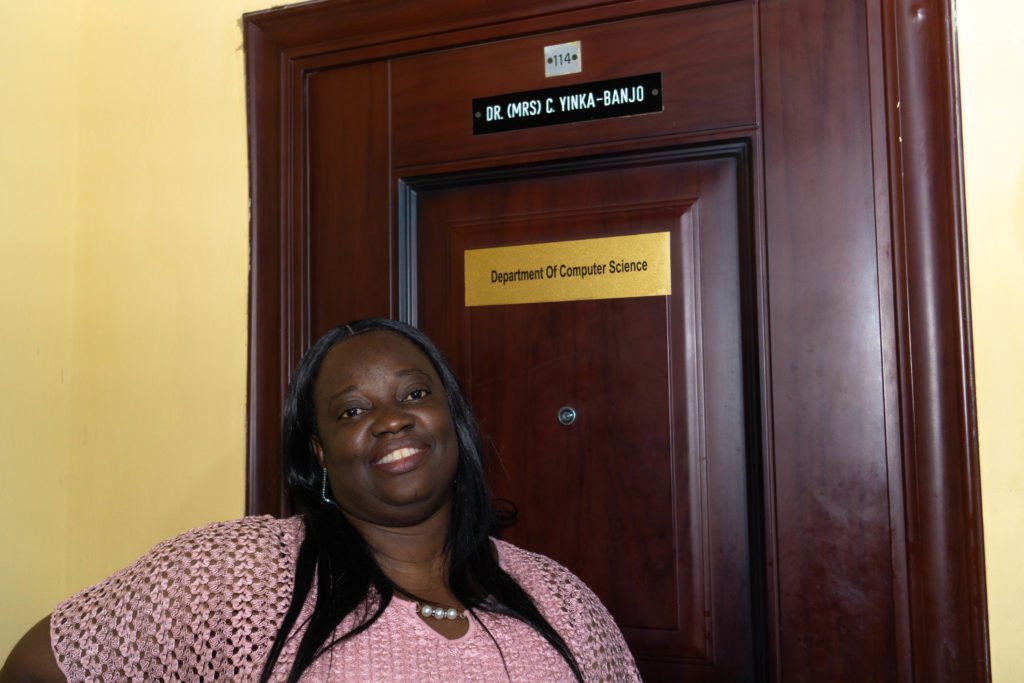
Image Source: Maryam Shittu/Big Cabal Media
Returning and giving back
With a grant from the International Development Research Centre (IDRC), Canada’s public institution focused on funding and empowering research in developing countries, Dr. Yinka-Banjo set up the Artificial Intelligence and Research Lab (AIRLAB).
It began in a small office at the University of Lagos’ Computer Science Department and eventually became part of a workspace at the Central Research Laboratory. The vision is simple: to be a world-renowned institution that provides an environment for fostering R&D in AI and robotics.
Since 2018, the lab has sponsored students to national and international robotics competitions, such as the First Tech Challenge, and won some awards. They organise free summer programs for teenagers to develop key skills needed to explore robotics and AI applications.
This year, from July 21 to August 1, with funding from Massachusetts Institute of Technology (MIT), the lab hosted the Lagos-based version of NaijaCoder, an intensive training program for secondary school students.
“We are not just trying to train students to become software engineers,” said Victory Yinka-Banjo, one of the program organisers and a recent MIT graduate. “The skills they are getting here can be useful in the context of research, science, and computation. You can’t do AI without those right now.”
Access to funding and research priorities
Beyond holding training programs for younger children, Dr. Yinka Banjo would like to focus more on applied research work to build solutions for Nigeria and the broader African continent, but funding is scarce. The majority of the lab’s funders, she said, are more interested in extracurricular programs for teenagers and younger students. “I don’t know why, because with all the grant proposals we have written, it is the ones that have children in them that get funding.”
But funding for more research-focused work is critical to the success of labs like AIRLAB, which ultimately want to build AI solutions that can be applied locally. This research-focused funding is also important for nationwide goals of global leadership “in harnessing the transformative power of AI.”
“There’s no government helping us. If you ask them, there’s no money, and I can’t blame them because they have money marked up for different things,” she said. “The essence of this whole thing is that we go out to look for funds.”
In Q2 2025, the lab received funding from the IDRC and UK Foreign, Commonwealth, and Development Office to establish a new research initiative focused on AI for education. The main goal is to build AI-powered learning assistants for low-connectivity, underserved learning environments on the continent.
Prior research projects in the lab, which focused on building AI applications in agriculture and healthcare, have largely been sponsored by foreign countries. This external funding helps the lab access the talent to support its broader goals, a challenge the lab has faced.
“People who are good are getting funding to go out,” Dr. Yinka-Banjo mentioned. “So when we want to do research, we struggle.” Since 2021, Nigerian students have increasingly looked abroad for higher education, with the US and Canada emerging as top destinations. In Canada, applications from Nigerian students climbed to about 46,000 in 2023, a 260% increase from 2021.
“The good thing is that people are aware that Nigerians are smart. Since funding is what makes the smart ones stay, we started writing for research grants,” she added.
The talent choosing to stay
Mariam Muhammed was recently chosen to join the AIRLAB as a Ph.D. candidate on the AI for Education project. After finishing her master’s in computer science in 2024 at the University of Lagos, she began thinking about her next steps.
“I was considering external opportunities, I’d even started to prepare some applications,” she said. “Immediately I saw this opportunity, I stopped because it felt like this was just what I wanted to do.”
Before joining, Muhammed received an undergraduate degree in electrical engineering and a postgraduate diploma in education, seven years later. She spent most of her time after school in the industry, developing software for foreign startups building AI-supported personalised learning solutions in markets like the US. Now, she wants to pursue research and create truly contextual AI solutions for Nigerians and Africans.
The external funding backing the project gives her the confidence that more stakeholders can hold the lab accountable on research outcomes, which is quite different from traditional Ph.D. programs in Nigeria.
“For me, the funding is a signal around structure,” she said. “I would say in Nigeria, there are not as many funded Ph.D. opportunities if you compare them to more developed countries.”
Beyond the Ph.D. students, the lab also supports younger undergraduate students looking to build personal projects in the field of AI & Robotics.
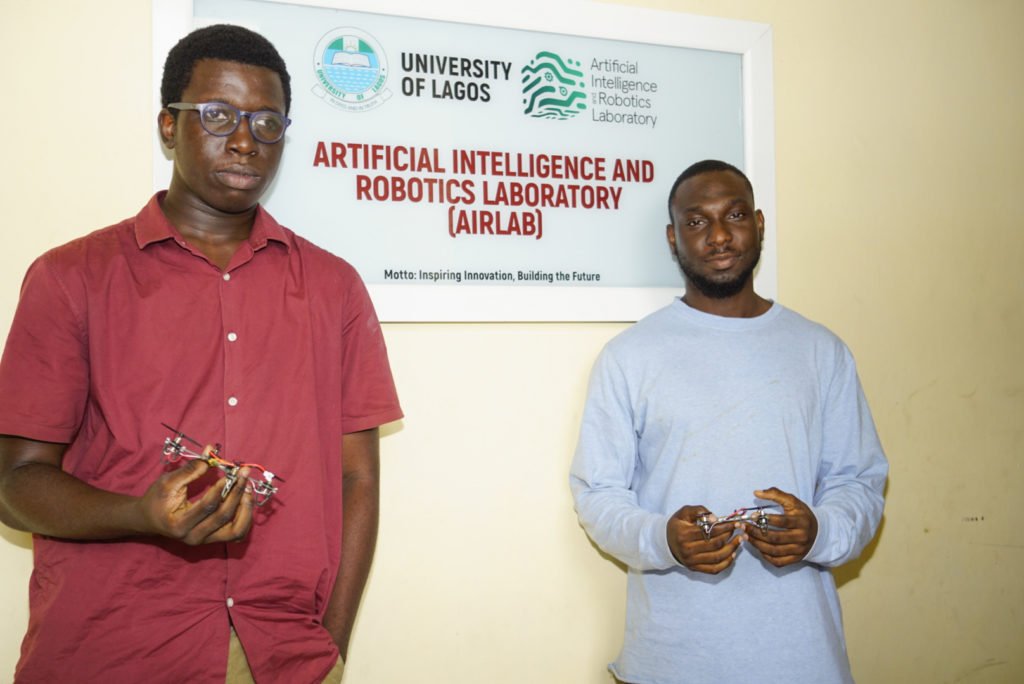
Image Source: Maryam Shittu/Big Cabal Media
Beyond the lecture room
Owolala Olaoluwasubomi, a fourth-year mechanical engineering undergraduate student at UNILAG, joined the lab as an intern in April. He is completing a mandatory six-month industrial training program.
“I didn’t want somewhere where I was just going to work, I wanted to go somewhere where I’ll be able to learn and grow,” he said. “At the lab, you’re not just working for them, you are also working on yourself. You get to experience more than just being a regular student who just goes to class.”
His six months in the lab will culminate in a personal project of interest. He plans to build a robotic arm that can be operated remotely. Ultimately, he hopes to pursue graduate studies outside the country to develop his research interests further.
“In Nigeria today, we are not that advanced in the field of robotics and AI research. So locally, I don’t think there are as many opportunities as there are outside the country just because of where we are in terms of technological advancement,” he explained.
Looking forward
Right now, Nigerian researchers on the ground, like Dr. Yinka-Banjo, are still struggling to secure the necessary government support to sustain and initiate impactful AI research projects. The gap between rhetoric about AI regional or global domination and available resources is glaring when compared to peers. Consider Egypt where the government has been investing in establishing the country as a ‘regional research cooperation centre’. The latest AI strategy for 2025-2030 now seeks to increase output to 6,000 AI publications per year. This emphasis on research has yielded some results, as the country now has the top-ranked university for AI in Africa. South Africa also dominates the list with six of its universities ranking in the top 10. The highest-ranking Nigerian university is the University of Ibadan, which is number 50 in Africa. UNILAG, where AIRLAB resides, ranks 74th.
These two countries that choose to invest in AI research have also seen some of the largest funding rounds for AI startups, with Egyptian-founded AI-focused startups taking the lead as well. Still, the research that AIRLAB facilitates, though limited, can considerably impact the broader AI ecosystem.
“Some of the people in those labs one day will come out and say they want to start their own company,“ said Victor Famubode, an AI Policy expert. “The milestone they’ve achieved in their research, they could use it to develop a product that will serve the market.”
We would love to know what you think about this column and any other topics related to AI in Africa that you want us to explore! Fill out the form here.
Mark your calendars! Moonshot by TechCabal is back in Lagos on October 15–16! Join Africa’s top founders, creatives & tech leaders for 2 days of keynotes, mixers & future-forward ideas. Early bird tickets now 20% off—don’t snooze! moonshot.techcabal.com







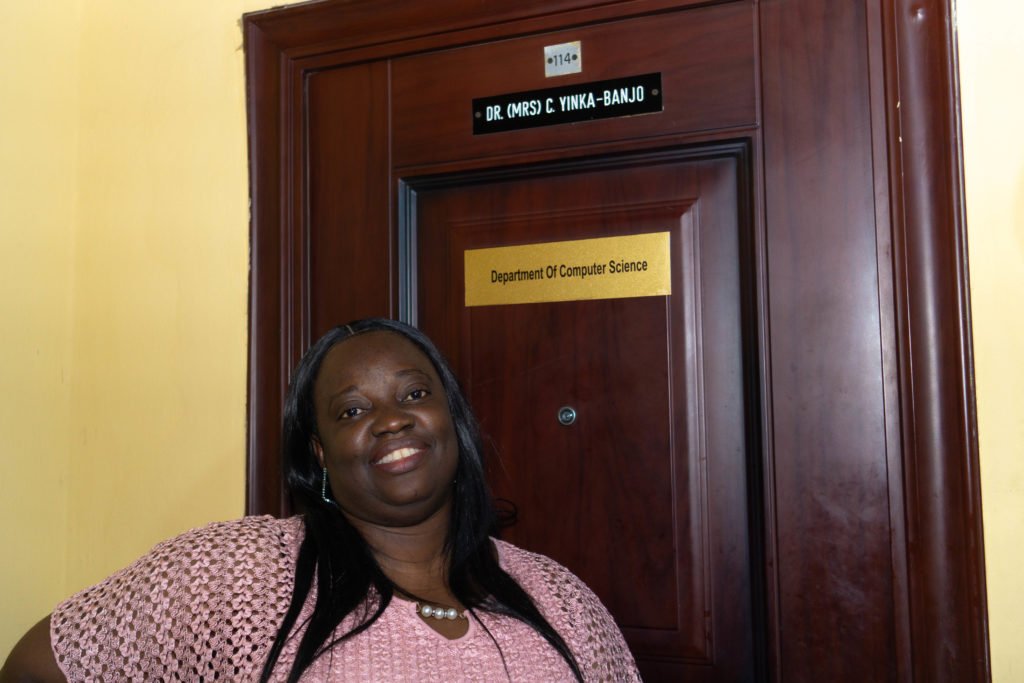
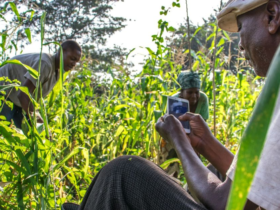
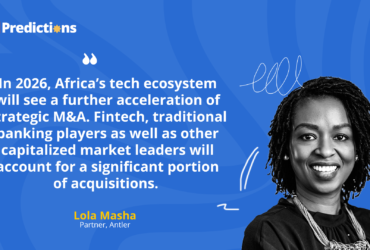
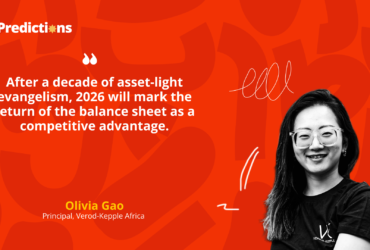
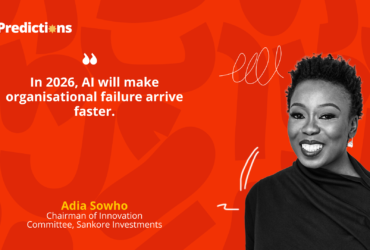
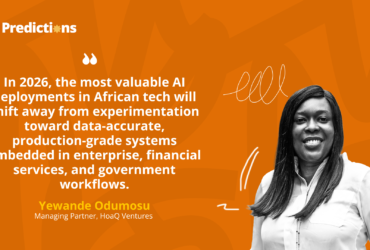


Leave a Reply